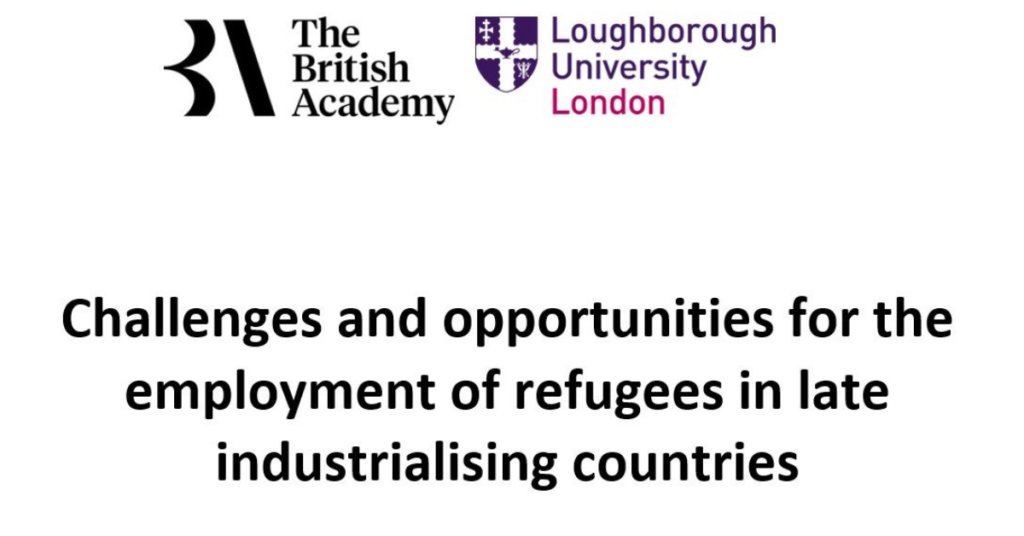International Workshop on Refugees’ Employment and Integration

The report titled “Challenges and opportunities for the employment of refugees in late industrialising countries“ is now available (please find below). This report is based on the discussions held at “International Workshop on Refugees’ Employment and Integration“ held on 16 June at Loughborough University London. The workshop aimed to address the challenges and opportunities related to the employment of refugees, particularly in late industrialising countries (LICs). The workshop was convened by Dr Merve Sancak, Dr Nicola Chelotti and Massimo D’Angelo, and brought together a diverse group of stakeholders, including NGOs, business representatives, refugee representatives, policy institutions, think-tanks, and academics from different countries.
The report summarises the main discussions addressed during the workshop and provides recommendations for improving refugees’ access to better jobs. In the first part, the report discusses the factors that push refugees to precarious employment. These involve business demand and businesses’ employment practices, the legal and institutional environment in host countries, and obstacles stemming from refugees’ vulnerabilities, such as their focus on survival after escaping wars, disasters, or dire economic situations.
The report goes on to explaining the current initiatives aiming to increase refugees’ access to better jobs and increasing their employment conditions. These include (a) projects and programmes developed by governments and national and international organisations, (b) refugee entrepreneurship, (c) corporate social responsibility and auditing conducted by multinational corporations, and (d) social enterprises. Despite their goodwill and the substantial financial investments, the initiatives aiming to increase refugees’ access to better jobs have not been able to achieve this aim due to several problems such as not addressing the root causes of refugees’ precarious employment, focusing on short term solutions, and remaining separate initiatives by a variety of competing actors without sufficient collaboration amongst each other.
The last section of the report provides some recommendations for enabling access to better jobs for refugees based on the discussions held during the workshop. Some of these comprise focusing on long-term solutions instead of temporary ones, removing legal barriers to refugees’ employment, changing businesses’ practices, and reinforcing collaboration and knowledge-sharing among different stakeholders working to improve refugees’ employment conditions. The details of the full workshop programme and speakers can be found here. This workshop was organised in scope of the British Academy-funded research project led by Merve Sancak, and was financed by Joint Fund at Loughborough University London.
Loughborough University London
Blogging everything that’s happening at Loughborough University London